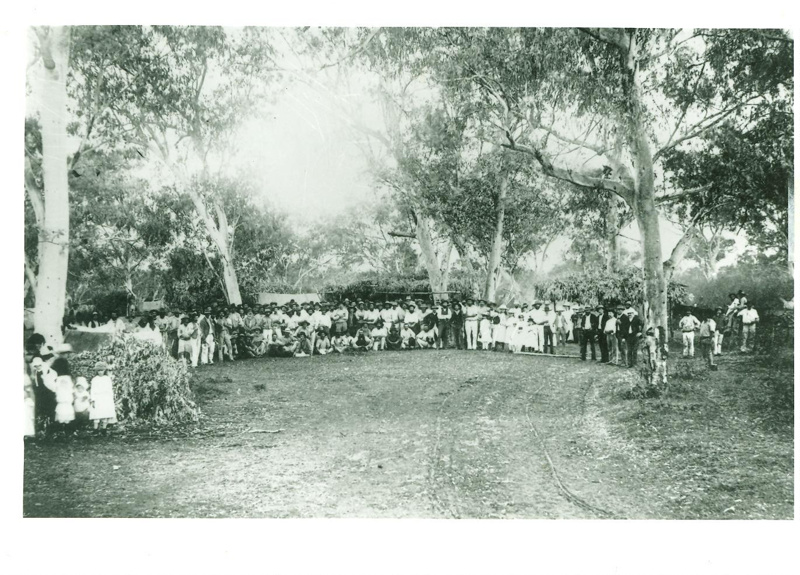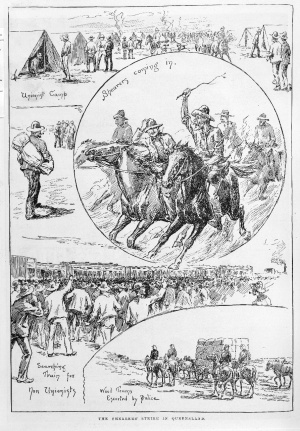Great Shearers Strike of 1891
On January 1, 189l', most of the station hands came out on strike, not over the 'Freedom of Contract' principle, but because of the Chinese employed on the stations. Of course if a station had no Chinese employed the men stayed on.
The General Strike of 1891 was called on March 15. A number of men were chosen from the Shearers Union and a number from the Labourers Union, and they formed a committee to run the strike under the name of the Barcoo District Council- B.D.C. The Queensland shearers struck the first effective blow at coloured labour at Kensington Downs in October, 1888, by refusing to shear under a shed overseer who employed Chinese labour every chance he got.
As much bitterness was evident in the Industrial movement In Queensland. Work was scarce, and the outback tracks and billabongs were crowded with men, carrying their swags, or as it was generally called by the men themselves, humping bluey, in search of work. Kanaka labour was manning the sugar fields, and In some instances kanakas were introduced on the sheep stations. Chinese were overrunning the properties, ringbarking and repairing fences. Some were being taught to shear.''
Harry J. Kelly, Australian Workers Union, contributor to the Australian Worker.
The stand made by the shearers and shed employees in 1891 was not only against a reduction of wages and an attempt to introduce “freedom of contract,” but was principally against the introduction of Chinese labor.
The squatters had cut wages. This was bad enough, but when they were going to fill white men’s places with Chinese, and further insisted on “freedom of contract,” shearers and shed hands had no alternative but to go on strike. Even Sir S. Griffith admitted to a deputation that the request of the Union for open conference was reasonable. He did nothing to help, however; but on the contrary put his great ability at the disposal of the employers. He was one of the Cabinet at the time. Every effort at conciliation was made by the workers without avail. It has become clear since that the ruling authorities had never intended to give fair play. They laid their plans to crush the men, and it stands to the credit of the workers that in spite of all the powers of State, of suffering and imprisonment, they stood true to the cause they fought for, and proved themselves worthy sons of the great white race.''
William G. Spence, Founder of the Australian Workers Union

